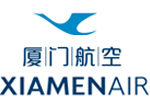Written by Anne-Marie Neagle, Xiaolian Zhang and Andrew Fei.
On 29 May 2018, China’s State Administration for Foreign Exchange (SAFE) made several enhancements to an existing pilot program regarding the cross-border transfer of Chinese NPLs to foreign investors in Shenzhen (NPL Pilot Program). Pursuant to the NPL Pilot Program, foreign investors can purchase NPLs from Chinese asset management corporations (AMCs) and Chinese banks (regardless of whether they are based in Shenzhen) through the Shenzhen Qianhai Financial Assets Exchange (深圳前海金融资产交易所) (QEX). The NPL Pilot Program also allows Shenzhen banks to directly sell individual NPLs to foreign investors.
Recent enhancements to the NPL Pilot Program – which include removing the program’s one-year time limit and streamlining the related SAFE filing process – are designed to make it even more efficient for foreign investors to participate in China’s NPL market.
These enhancements are part of China’s efforts to address Chinese banks’ NPL levels, enhance overall financial stability and promote financial market reforms and innovation in the Greater Bay Area, which includes Shenzhen.
Background to China’s NPL market and how foreign investors can participate
Market background
As China’s economy enters the “new normal” and undergoes significant transformations and reforms, Chinese companies – both private enterprises and state-owned enterprises – are experiencing rising debt levels. As a result, both official statistics and unofficial estimates indicate that the amount of NPLs held by Chinese banks are on the rise.
Chinese commercial banks classify loans into five risk-based categories: normal, special-mention, substandard, doubtful and loss – the last 3 categories are referred to as NPLs. According to statistics published by the China Banking and Insurance Regulatory Commission (CBIRC), as of the first quarter of 2018, Chinese commercial banks held a total of RMB 1.77 trillion NPLs (up from RMB 1.58 trillion as at the first quarter of 2017), and RMB 3.47 trillion of special-mention loans, which are one notch above NPLs. As part of its efforts to maintain financial and economic stability, the Chinese government is encouraging Chinese banks to effectively manage and dispose of their NPLs.
China’s NPL market continues to be dominated by the big four state-owned AMCs, which were established by the Chinese government in 1999 to purchase NPLs from the big four Chinese commercial banks.
Access channels for foreign investors
Foreign investors can purchase NPLs in bulk (defined as 3 or more loans at a time) from the AMCs – generally through a competitive process. This is a well-established channel for foreign investors to acquire NPLs and has been available since 2001. Over the years, the process for obtaining Chinese regulatory approval in connection with an AMC’s transfer of NPLs to foreign investors has become simplified and more streamlined.
Although purchasing NPLs from AMCs has been available for some time, foreign investors have not generally been able to purchase NPLs directly from Chinese banks. However, as discussed below, Chinese banks can now sell NPLs on a non-bulk basis to foreign investors pursuant to the NPL Pilot Program.
Other channels for foreign investors to access China’s NPL market are also emerging. For example, certain qualifying foreign institutional investors can purchase NPL asset-backed securities in China’s bond markets.
NPL Pilot Program
The NPL Pilot Program was established in June 2017 pursuant to SAFE’s Notice regarding the Establishment of a Pilot Program by SAFE’s Shenzhen Branch for the Cross-border Transfer of NPLs (HuiFu (2017) No. 24) (《国家外汇管理局关于深圳市分局开展辖区内银行不良资产跨境转让试点业务有关事项的批复》(汇复 [2017] 24 号)). As part of the NPL Pilot Program, SAFE headquarters authorised SAFE’s Shenzhen office to approve, on a case-by-case basis, transfers of NPLs by AMCs and Chinese banks (regardless of whether they are located in Shenzhen) to foreign investors on the QEX. Under the NPL Pilot Program, Chinese banks located in Shenzhen do not have to go through the QEX and can directly sell NPLs to foreign investors. However, the existing rule regarding bulk transfers still applies, which means only AMCs are allowed to sell NPLs in bulk to foreign investors.
The QEX operates one of China’s largest NPL trading platforms and has, since the establishment of the NPL Pilot Program, handled a large number of cross-border NPL transactions.
Benefits of the NPL Pilot Program for foreign investors
One of the key issues that foreign investors of Chinese NPLs have to consider is the process and timeline for transferring NPL recoveries and proceeds from China to offshore. SAFE is the Chinese government agency directly responsible for administering China’s foreign exchange system. The NPL Pilot Program is itself established by SAFE. These factors should provide greater certainty and efficiencies for foreign investors that purchase NPLs pursuant to the NPL Pilot Program and that wish to transfer their lawfully obtained NPL recoveries and proceeds offshore.
Under the original NPL Pilot Program, a foreign investor’s purchase of NPLs (either directly from Shenzhen banks or through the QEX) was subject to case-by-case pre-approval by SAFE’s Shenzhen office.
A Shenzhen bank that directly sells NPLs on a non-bulk basis to a foreign investor pursuant to the NPL Pilot Program can also apply directly to SAFE’s Shenzhen office for approval. Alternatively, the Shenzhen bank can list its NPLs on the QEX, in which case the QEX will prepare and submit the foreign exchange application to SAFE’s Shenzhen office. The QEX will also prepare and submit foreign exchange applications for transactions made by non-Shenzhen banks and AMCs that list their NPLs on the QEX.
Another benefit of conducting NPL transactions on the QEX is that the QEX’s “Cross-Border Connect” (跨境通) platform provides centralised, online, one-stop-shop services to foreign investors, which can reduce transaction costs and save time. In addition to displaying information about the listed NPLs and preparing and submitting the foreign exchange application to SAFE’s Shenzhen office, we understand that the QEX can also provide assistance and support services in connection with:
Execution of the NPL transfer agreement (including notarisation and witnessing services);
Transaction settlement;
Arrangements required to make and receive ongoing cross-border payments in connection with NPLs; and
Withholding and paying PRC taxes on behalf of foreign investors in connection with the NPLs.
Further benefits under the enhanced NPL Pilot Program
The foreign exchange-related benefits and efficiencies associated with the original NPL Pilot Program are expected to be further enhanced under the enhanced pilot program. The original NPL Pilot Program had an initial term of one year which was due to expire at the end of May 2018. The enhanced pilot program no longer has an expiration date. This should help alleviate concerns by foreign investors regarding how ongoing cross-border transfers of NPL recoveries and proceeds would be facilitated when the original program expires.
In addition, under the enhanced pilot program, “pre-approval” of cross-border NPL transfers by SAFE’s Shenzhen Office has been replaced with a “pre-filing” process, which is expected to be a more streamlined process that involves less paperwork.
According to SAFE Shenzhen Branch’s announcement, these enhancements to the NPL Pilot Program are designed to make it easier for Chinese financial institutions to dispose of their NPLs, reduce Chinese banks’ credit risks, enhance the efficiency of China’s financial markets and improve the ability of the financial services sector to serve the real economy.
The QEX’s website includes information about the NPLs that are currently listed on the QEX. Foreign investors that are interested in the NPL Pilot Program or China’s NPL market can also contact a member of KWM’s cross-border NPL team for further information.
About KWM’s cross-border NPL team
Our cross-border NPL team consists of lawyers located in major Chinese cities and overseas financial centres.
We have extensive experience advising foreign investors on all aspects of Chinese NPL-related transactions, including multi-jurisdictional structuring and tax advice, due diligence on NPL portfolios, negotiating NPL acquisitions with AMCs and Chinese banks, foreign exchange, cross-border regulatory issues, financing the acquisition of NPL portfolios, NPL securitisations and other innovative financing arrangements, bankruptcy and restructuring related matters, servicing of NPLs, and enforcement and litigation.
Our on-the-ground PRC experience, combined with our cross-border expertise in M&A, banking, securitisation and structured finance, allow us to provide seamless, one-stop-shop services to foreign investors and financiers that are interested in China’s NPL market.
http://www.kwm.com/en/au/knowledge/insights/chinese-non-performing-loans-20180612















